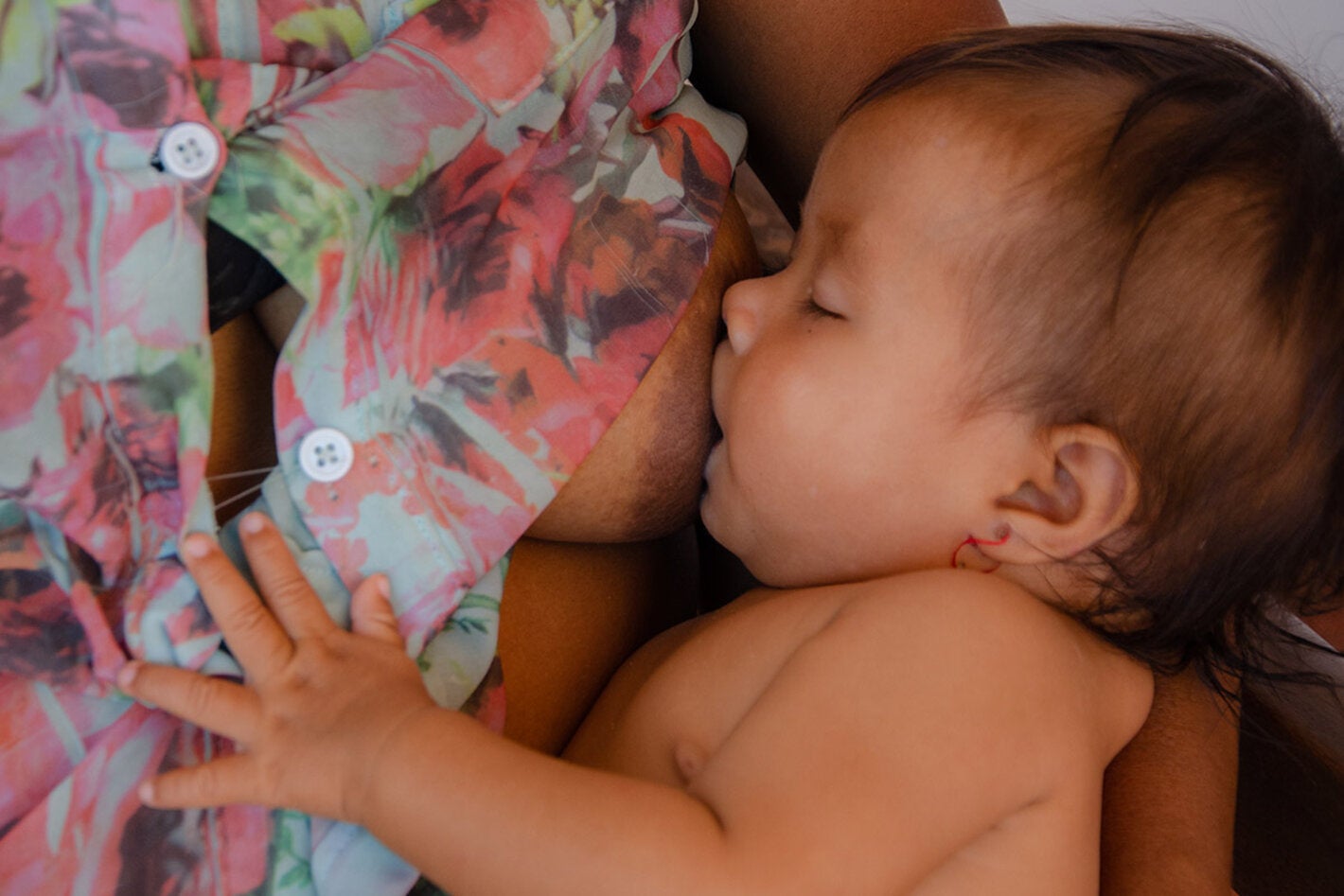
PAHO/WHO recommends increased political commitment and investment in breastfeeding as a means to promote children's health and development.
Washington, D.C., 2 August 2016 (PAHO/WHO) — Children who were breastfed are healthier and learn better, according to research that suggests breastfeeding may contribute to aspects of sustainable development.
"Breastfeeding gives children the best start in life, as breast milk provides immunological protection and critical nutrients for brain development. These benefits hold true for all children, whether they're born in high- or low-income countries or to families that are rich or poor," said Dr Carissa Etienne, Director of the Pan American Health Organization/World Health Organization (PAHO/WHO). "It is in everyone's interest—babies, mothers, and all of society—to promote breastfeeding."
The theme of this year's World Breastfeeding Week, celebrated every year during the first week in August, is "Breastfeeding: A Key to Sustainable Development." The campaign highlights the contribution of breastfeeding to achieving the Sustainable Development Goals (SDGs), approved by the United Nations in September 2015 as a global agenda for action to end poverty, fight inequality and tackle climate change by 2030.
Breastfeeding contributes to SDG 2, "End hunger," as breast milk provides all the energy and nutrients a baby needs for the first six months of life and a substantial portion through the second year. It can help prevent hunger and undernutrition in young children and obesity later in life.
Breastfeeding also contributes directly to SDG 3, "Good health and well-being," because breastfeeding significantly improves the health and survival of both babies and mothers. Studies show, for example, that globally:
- Improving breastfeeding practices could save over 820,000 lives a year, 87% of them infants under six months of age.
- Nearly half of diarrheal episodes and one-third of respiratory infections would be prevented with improved breastfeeding.
- Longer duration of breastfeeding is associated with a 13% reduction in the likelihood of child overweight and/or obesity and a 35% reduction in the incidence of type-2 diabetes.
- Current rates of breastfeeding prevent an estimated 20,000 deaths among women from breast cancer each year.
Breastfeeding contributes to improved mental and cognitive development, which promotes learning and prepares children for school. In Brazil, children who were breastfed for 12 months or more stayed in school nearly one year longer compared with those who were breastfed less. Globally, the cost of lower cognitive ability associated with lack of breastfeeding amounts to about US$300 billion annually, representing 0.49 percent of global gross national incomes.
"Breastfeeding is intrinsically linked to the transformative change needed to shape a more prosperous and sustainable future for all," said Dr. Chessa Lutter, PAHO/WHO senior advisor in food and nutrition. "In the Americas, progress in promoting breastfeeding has been uneven; however, more rapid progress is possible." She cites the example of Peru, which succeeded in increasing exclusive breastfeeding rates from 33% in 1992 to 72% in 2013. "What is needed is strong political commitment and society-wide action to support breastfeeding for the sake of all children and their futures."
Links
— World Breastfeeding Week 2016 (PAHO)



